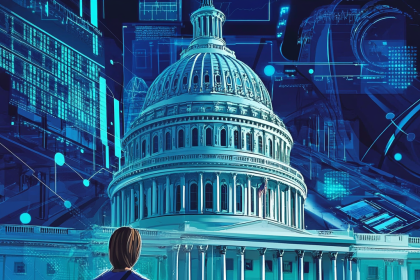In a decisive move to defend data privacy and free expression, the U.S. Federal Trade Commission (FTC) has issued formal warnings to top American tech companies—including Microsoft, Apple, Google, Amazon, Meta, and others—not to comply with foreign government demands that compromise encryption, data security, or content access. FTC Chairman Andrew N. Ferguson signed the letter, highlighting that such actions, if hidden from users, could constitute deceptive or unfair practices under Section 5 of the FTC Act.

Source: ftc.gov.
The letter comes amid rising international pressure, particularly from European and British regulators, to give governments more access to encrypted communications or to censor certain types of content. Ferguson’s message is clear: U.S. law takes precedence when it comes to protecting the privacy and freedom of American users.
Foreign laws in the spotlight
The FTC letter explicitly references the EU’s Digital Services Act and the UK’s Online Safety and Investigatory Powers Acts as examples of foreign legislation that could pressure tech firms into weakening their platforms. These laws, while framed as public safety measures, risk imposing broad surveillance and content control mechanisms that extend beyond their borders.
The warning cites Apple’s recent decision to remove iCloud end-to-end encryption in the UK rather than comply with a demand for backdoor access. That demand was ultimately retracted under U.S. diplomatic pressure, but it demonstrated how compliance with one country’s rules could unintentionally undermine global security standards.
Legal obligations under the FTC Act
Ferguson emphasized that American companies must meet their obligations under U.S. law, including providing truthful security representations and maintaining reasonable data protection practices like end-to-end encryption. He warned that simplifying global compliance—by degrading protections for all users—would not shield companies from liability in the United States.
To support his position, Ferguson referenced previous FTC enforcement cases, including actions against Zoom for misrepresenting encryption capabilities and against Ring for failing to protect customer video data. These cases serve as cautionary tales for companies tempted to quietly adjust their security postures under foreign pressure.
Transparency and user notification
The FTC’s letter also stressed the importance of transparency. If a company receives a foreign government request to censor content or weaken data protections, it is expected to inform users. Silent compliance—especially when not legally required—could be deemed deceptive and punishable under U.S. law.
The letter concludes with an invitation for tech leaders to meet with Ferguson on August 28 to discuss how they can resist overbroad foreign mandates while upholding their American legal obligations. The FTC appears to be seeking collaborative solutions to an increasingly complex global regulatory environment.
Lasting healthcare sector implications
For healthcare and medical security professionals, this development is a warning sign. Many healthcare systems rely heavily on tech platforms for storing patient records, running clinical software, and managing sensitive communications. If encryption is weakened or foreign surveillance is enabled, these systems become ripe targets for cyberattacks, identity theft, or espionage.
What healthcare security leaders should do now:
- Audit your vendors: Confirm that any tech vendors—especially cloud and communications providers—are committed to upholding U.S.-level encryption and transparency, regardless of foreign regulations.
- Prioritize Zero Trust and E2EE: Use platforms that offer true end-to-end encryption and align with zero trust principles to limit damage from compromised environments.
- Watch the policy landscape: Assign a team or advisor to track FTC updates and international regulatory changes that could affect platform security or compliance status.
Remember: data is global but legal protections are not. U.S. healthcare organizations must proactively defend the integrity of their data environments. Trust in tech vendors can no longer be assumed—it must be verified, continually.







